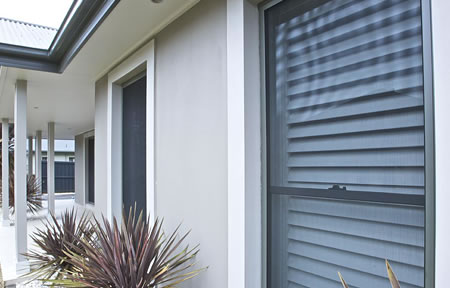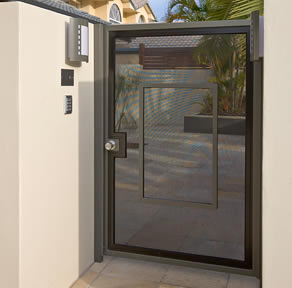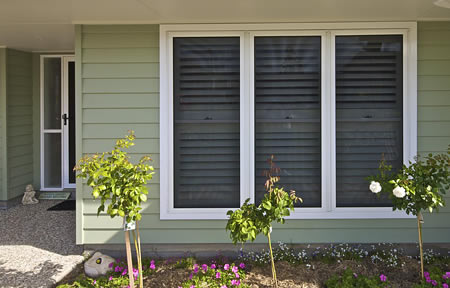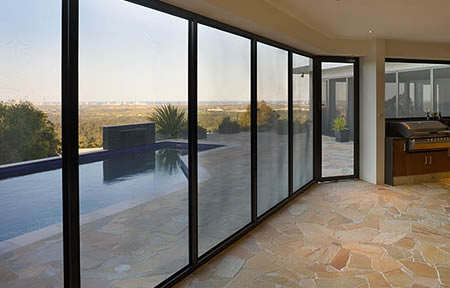Why Invisi-Gard's 316 stainless steel screens provides the best security protection for your home.
Installing security mesh screens and doors might seem like a straightforward way to secure your home but as with any significant purchase, once you start investigating, you will be faced with a multitude of options and choices. With competing information and the variety of materials, it can be difficult to determine exactly which factors are important, and which are going to deliver the security and performance you need.
If you are going to the effort of installing security mesh you do not want to end up disappointed if the mesh fails to deliver on its promises. Knowing which of the many products are going to perform the best in the long term often relies on understanding the marketing materials provided by each company.

For
It's all about the steel
Most of us come across stainless steel every day in our kitchen with appliances and cutlery, but probably don’t stop to think about why our products are made from it or exactly what it is. Stainless steel is made by combining steel and chromium and has a huge range of applications based on the special quality this combination produces – corrosion resistance. The chromium component (which can vary from 8-25%) is what gives stainless steel this desirable trait.

316 versus 304
Stainless steel grades are determined by their composition and uses. 316 and 304 stainless steels are the most common types of a particular grade of steel known as austenitic. As well as their use in security mesh, austenitic steels are evident in a variety of applications including food processing equipment, architectural panelling, springs and boating fittings. While both types are used for their strength, weldability and formability[1], of the two, 304 grade is less expensive than 316.
However, what also sets 316 grade stainless steel apart from 304 grade is its higher corrosion resistance. 316 contains an additional substance, molybdenum, which gives higher protection from corrosion, notably in marine environments[2]. In fact, 316 is regarded as the standard marine grade material for this very reason. In the case of window and door security screens, required to be exposed to the elements over long periods of time, it makes sense that corrosion resistance is a fundamental consideration.
But the final word on 316 mesh comes down to quality. A key factor which differentiates
Width versus strength
Some security mesh screen producers believe using a wider diameter of 304 grade steel makes their product stronger. However, the thickness of a steel strand is not the only determinant of strength. Each type of steel wire has a measure of its tensile strength, which is how the material performs under load, measured in mega pascals (MPa). At 900 MPa,

A further factor influencing the performance of a security mesh is the weaving process. The high tensile properties of the wire used by
Putting the mesh to the test
Two standard tests applied to security screens particularly highlight the superior performance of the 316 marine grade stainless steel used by
The first test is the Australia Standard designed to measure steel mesh strength, known as AS5041-2008 for Knife-Shear. The test is designed to mimic a knife attack from a potential burglar attempting to cut through a security window or door screen. A knife blade is drawn along a panel three times, with a new blade for each draw. The strength properties of the 316 marine grade stainless steel ensure
The second test which highlights the properties of 316 mesh is The Neutral Salt Spray Test (Australian Standard AS2331.3.1). This test compares the the relative corrosion resistance performance between competing systems and security doors and screens are expected to resist 240 hours with no corrosion. While some competitors’ screens faltered as early as 500 hours,
The corrosion preventing power of Invisi-Gards unique clamping system
The construction of security screens requires stainless steel mesh to be attached to an aluminium frame, bringing two different metals together which could lead to corrosion. Corrosion is likely when two different metals come into contact that have different corrosive potential. In certain conditions, the resulting chemical reaction will ultimately lead to corrosion or rusting.
To prevent this type of dissimilar metal corrosion,

The EGP system, used only by
Trust the experts
Having understood the benefits and features of various grades of stainless steel and construction methods, the final question might be – how long will it last? The
When making an important decision such as protecting your home, placing your trust in the experts at

